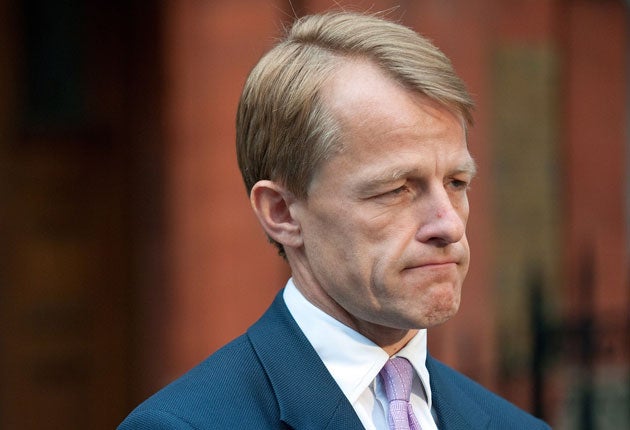Outsiders to help decide fitting punishment for errant MPs

Your support helps us to tell the story
From reproductive rights to climate change to Big Tech, The Independent is on the ground when the story is developing. Whether it's investigating the financials of Elon Musk's pro-Trump PAC or producing our latest documentary, 'The A Word', which shines a light on the American women fighting for reproductive rights, we know how important it is to parse out the facts from the messaging.
At such a critical moment in US history, we need reporters on the ground. Your donation allows us to keep sending journalists to speak to both sides of the story.
The Independent is trusted by Americans across the entire political spectrum. And unlike many other quality news outlets, we choose not to lock Americans out of our reporting and analysis with paywalls. We believe quality journalism should be available to everyone, paid for by those who can afford it.
Your support makes all the difference.Members of the public are to sit in judgement on cheating MPs under reforms designed to counter the claim that parliamentary wrongdoing is punished with little more than a slap on the wrist.
A toughened Standards Committee would be created, in which up to four "lay members" could sit on the cross-party body which carries out inquiries into MPs' conduct.
Most recently it recommended a week-long suspension from the Commons for David Laws, the Liberal Democrat who quit as Chief Secretary to the Treasury after revelations that he broke expenses rules by claiming for rent in his partner's property. While many were sympathetic to his explanation that he did not want to reveal his sexuality to officials following a rule change, others felt he had been treated too leniently in a case involving £56,000.
Kevin Barron, the Labour MP who chairs the current standards and privileges committee, said the system was "well open to the accusation that it is Members of Parliament looking after Members of Parliament".
Mr Barron was giving evidence to an inquiry by the Commons' procedure committee into allowing members of the public to rule on MP misconduct. He recommended splitting the issues of "standards" from those of "privilege", because only MPs are covered by parliamentary privilege and lay members could not rule on it.
The idea of lay members has been supported in the past by Sir George Young, the Leader of the Commons, and Chris Mullin, the former Labour minister who used to chair the committee.
During the inquiry, Tory MP James Gray warned members of the public would not understand the complex matters. "If you have Mr and Mrs Average Layman off the street, surely they will simply be bamboozled by the very clever MPs on the Committee."
Subscribe to Independent Premium to bookmark this article
Want to bookmark your favourite articles and stories to read or reference later? Start your Independent Premium subscription today.
Join our commenting forum
Join thought-provoking conversations, follow other Independent readers and see their replies
Comments